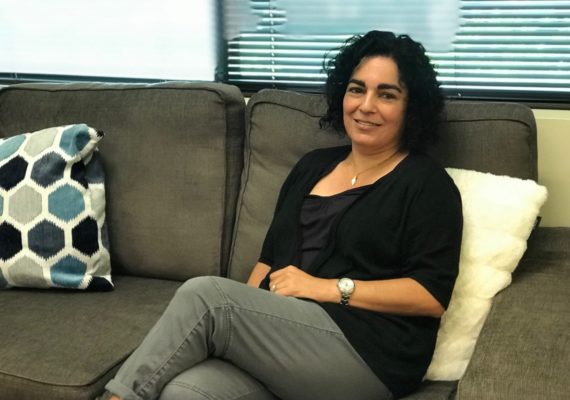This month, we talked to Dr. Tracy Roulet, Psy.D., who offers some insight to the fascinating world of the human psyche, as well as offering some practical tips and information for the current COVID-19 epidemic and how people can continue to care for their mental health during a quarantine situation.
What can you tell us about mental health services during the COVID-19 shelter in place?
Most mental health providers are still conducting sessions via telehealth because it is a very vulnerable time for almost everyone. The majority of the providers have switched to telehealth for the safety of themselves and others. For anyone looking for services right now, it is probably best to either go through your insurance to obtain a list of in-network providers or use online resources such as Psychology Today.
How can people cope with the mental health aspect of this unique crisis?
As far as staying mentally healthy during this time, I’m encouraging both friends and clients to stay connected to people through phone, FaceTime, online meet up groups or any other remote format. It is incredibly important that we stay connected even though we are not seeing each other face-to-face. Most of us do not do well in isolation for long periods because we are social creatures. It is a valuable resource to share in this experience with others so that we feel less alone, more supported and uplifted by the stories we hear.
Other means of self-care are also very important, which includes activities that increase one’s sense of health and well-being. I’m practicing good self-care and encouraging my clients to do so also. Things such as walks, sitting outside in the sun, playing games, taking a bath, watching a good movie, reading, or baking, can help bolster up mental well-being. Unfortunately, when people neglect themselves and what makes them feel good and healthy it can lead to poor mental and physical health. For some people, that might mean creating a schedule. For example, getting up consistently at the same time, making sure to complete basic daily hygiene habits even though you may not be leaving the house, and changing your clothes into something other than pajamas can be very helpful for maintaining a sense of purpose and balance.
Furthermore, during times of crisis, it is also very easy to feel flooded by negativity. Each of us needs to monitor how much information is good for us to be taking in. This is a time where staying positive, hopeful and focused are very important and knowing when to listen and when to turn things off can dramatically influence our outlook. One of the main contributing factors to increased depression is a sense of “stuckness.” It’s incredibly important that each of us identify what is in our control, and make changes in those areas, while also identifying things that are not in our control and letting go of those things.
Lastly, anyone who is already vulnerable to changes in their mental health should be very aware of their sensitivities and contact their current providers for increased support during this time. This is a unique time in all our lives, and the one thing that is true for most of us is that it’s one of the few times that we are all in this together.
Thank you for your insight. We appreciate that message and hope that all our members are taking care of themselves mentally and physically. And now–tell us about what you do?
I do individual psychotherapy, occasionally couples with a focus on anxiety disorders.
How did you get into this field?
I started right out of college. My degrees are all in psychology—I have a Master’s in clinical psychology and a doctorate in clinical psychology. Most people who work in this field will work at a group home while they are still in school. I worked at group homes with kids and a community agency for mental health. You work at some of the harder jobs, you put in your time before you even get to the point of licensing, so I did that, and worked my way up.
Did you have a favorite group or location you worked at?
Before my current job, I worked at a community-based, multi-integrated agency for mental health services. There was a psychiatrist, a psychologist, a doctor, behavioral experts, all working within one office. I was a behavioral service worker—that was way before I became a full-fledged psychologist, but that was one of my best experiences before opening my practice here.
I liked the holistic approach to treating people. Having everyone in one building—all those resources—was super helpful. We could all just bounce ideas off each other, and if you needed help from this person, they were right there, and then you could send them to another person for meds, and then to the next person for medical checkups. It was very collaborative. It was a great example of holistic care—you don’t find that very often.
What advice would you give someone looking to get into the same field?
I’ve found that this is one of those jobs where you learn more from talking to people in the field than you do from school. My biggest piece of advice is finding someone willing to talk with you who is an actual clinician. The school will teach you book work, but that doesn’t always apply to what you’re doing when you’re in this office.
What is something people have misconceptions about with psychology?
It seems so outdated, but I believe that people still have this perception of therapy about analyzing someone while they’re laying on a couch. And then people who don’t know me, when they find out what I do, they think that I’m automatically analyzing everybody. That combined belief that our job is all about analyzing and that we do it all day long is probably the most common misconception. I’m not in psychology mode all day long.
What is your approach to helping people?
I do primarily exposure and response prevention and I also do something referred to as ACT, which is acceptance and commitment therapy. I also do a lot of mindfulness-based work and I talk a lot about self-compassion.
The thing that I think is awesome about most of the approaches that I use is that people are able to integrate these techniques into their everyday life.
What is your favorite moment in a day with your patients?
There are good days and bad days – the same as with any job. The days when I know I’ve had a good day are the days when I connect well with my clients and see that they are progressing. That’s one thing that’s great about the type of therapy that I do as I can see the progress—there’s an actual change occurring. Knowing that it’s having a positive impact on someone. It’s very rewarding when I can see/hear the feedback that I’ve had a positive impact on their lives. I don’t always get that, but when I do it’s very rewarding.
Where do you see your business in five years?
I would like to expand the way that I meet people’s needs and provide services, so I want to write a book. That’s been a goal of mine for a long time. I would also like to supervise people who are not yet licensed.
What type of book would you like to write?
I think it would fall under the auspice of Self-help, self-care – I want it to be an educational and experiential practice-related type of guidebook.
What kind of activities do you enjoy when you’re not working?
I’m a mom of 4, so that’s my main pastime, next to being a wife. In my free time, I enjoy running when the weather is nice. I enjoy art and playing with my kids, whether it be through sports, playing at home, swimming, or taking walks. I have an easel and canvasses and I try to paint occasionally, or I’ll put a pencil to the paper and just sketch.
What makes you feel energized about your business?
Seeing people who are motivated to improve themselves, motivated toward self-growth is very rewarding to me.
Do you have a favorite book you would recommend to others?
The Happiness Trap by Russ Harris is a great book that I usually recommend.









